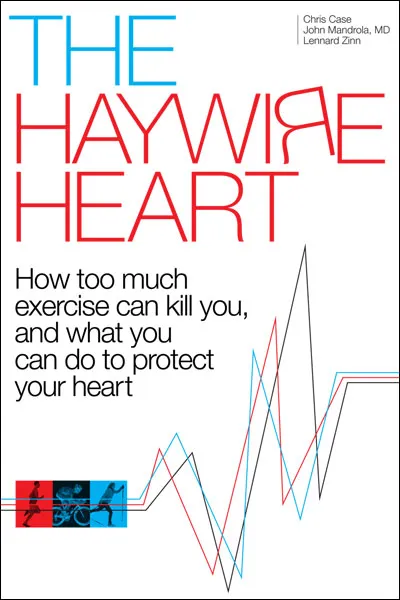[Editor's note: VeloNews authors Chris Case and Lennard Zinn recently teamed up with cardiologist Dr John Mandrola to write The Haywire Heart, the first book to explore heart conditions in athletes. The project came about after veteran rider and author Zinn had an arrhythmia on the bike — his heartrate jumping from 155 to 218bpm and staying there — and Case wrote a feature about it. "After publishing the article in VeloNews, the reader response was overwhelming. Lennard, in particular, was inundated with letters and emails from friends, former racing buddies, and strangers who were dealing with arrhythmias of one kind or another. It was clear to us that this was a widespread issue, and one that we needed to take a much closer look at.”]
The following is an excerpt from The Haywire Heart. The book tackles the prevention and treatment of heart conditions in athletes like arrhythmia, atrial fibrillation and flutter, tachycardia, hypertrophy, and coronary artery disease.
Oddly enough, caffeine’s relationship to rhythm problems is unclear. Old thinking had it that caffeine could cause or exacerbate rhythm problems. New data, including multiple large observational studies, suggest that caffeine does not associate with arrhythmias. In fact, the most provocative finding indicates that the favorite pick-me-up of so many athletes may actually confer a lower risk of arrhythmia. That’s not a misprint. It may sound strange, but it’s what the science shows.
Here are a few of the largest studies on caffeine and heart disease:
Caffeine and premature beats. In the largest study to evaluate the association of dietary patterns and heart rhythm problems, a group of US researchers published a report from the Cardiovascular Health Study, a longitudinal study sponsored by the National Institutes of Health of more than 5,000 older adults recruited from four academic medical centers. A longitudinal study means people sign up to have their health followed over long periods of time. The research group found no relationship between caffeine consumption and the numbers of premature beats from the atria (PACs) or ventricles (PVCs). This nonrelationship persisted after adjustment of possible confounding factors.

Caffeine and Atrial Fibrillation (AF). The evidence that caffeine does not associate with AF is even stronger. In 2013, a research team from Portugal culled together seven studies that included more than 115,000 individuals. They found that caffeine exposure was not associated with an increased risk of AF. What’s more, when only the highest-quality studies were considered, the researchers found a 15 percent reduction in AF with low-dose caffeine exposure. A larger study from a group of Chinese researchers confirmed these findings, including the same sign of AF protection with low-dose caffeine exposure.
It’s nice that athletes can enjoy an espresso without guilt
Caffeine and electrical properties of the heart. Caffeine exposure has been tested in a randomized clinical trial in patients with known arrhythmia. Canadian researchers studied 80 patients who were to have catheter ablation of supraventricular tachycardia (SVT). One hour before the procedure, half the group received caffeine tablets, and the other half received a placebo. Although caffeine increased blood pressure, it did not have any effects on the measured electrical properties of the heart.
Caffeine and general cardiac health. The largest study on caffeine and heart disease included more than 1.2 million participants. In this case, researchers reviewed 36 studies from the literature and found that moderate coffee consumption (3 to 5 cups per day) associated with a lower risk for heart attack, stroke, or death related to heart disease. Yes, lower.
An important caveat is that most of these studies look at populations, not individuals. That means that although certain people may not be sensitive to caffeine, others—perhaps, you—could be quite sensitive to it.
We know this information sounds counterintuitive. We’ve heard from many athletes who feel less arrhythmia after reducing or eliminating caffeine intake. The confusing thing about heart rhythm problems is that it’s hard to sort out what caused the reduction in symptoms. Heart arrhythmias have natural variability, so it might be mere circumstance. Another possibility is that when people get a diagnosis of a heart problem, they adjust things besides caffeine consumption, such as the amount of training they do or sleep they get, or what they eat. Doctors call these things confounding factors.
The caffeine revelation has caused a significant reversal in thinking. Doctors ask patients with arrhythmia to give up a lot: alcohol, training, stressful situations, and more. It’s nice that athletes can enjoy an espresso without guilt.
Republished with permission of VeloPress from The Haywire Heart by Chris Case, Dr. John Mandrola, and Lennard Zinn. Learn more about heart conditions in athletes at velopress.com/haywire.


